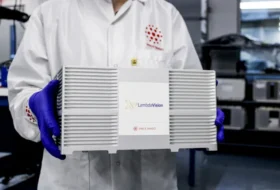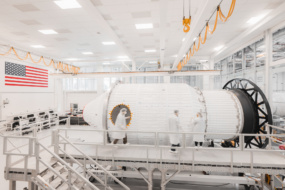On Thursday, we asked you: “If your employer covered costs, would you take a trip to low-Earth orbit? For the sake of this poll, assume you’d have a one-month stay and 10-hour workdays. So…would you go?” We received 266 votes.
We have a winner!
Definitely yes won with ~74% of the vote.
Bear in mind: This is a self-selecting audience and very much a non-scientific poll. As one of you wrote: “I guess the poll is going to be biased given the audience, but count me in for whatever!”
Biased as they may be, the results emphatically state what we had expected: Payload’s readers are an intrepid bunch that by and large would leap at the opportunity to work in LEO. Some write-in responses, to that effect:
- “I would take any chance to go to space for any amount of time”
- “If there's an opportunity for the experience, can't say no!”
- “HELL yes - the ultimate job perk”
Leaning yes, with caveats:
- “Definitely yes given that it is on board of a Falcon 9, or any other rocket who would have a safety exit like the Crew Dragon does”
- “What would my life insurance premium jump to??”...and…“Would expect a massive bonus tied to it and a load of life insurance.”
- “Makes me think, would we get space-health insurance? Is that a thing? Hmmm... ”
Poll respondents aren’t a monolith…
One reader rightfully noted that the true answer is not as simple as a newsletter poll, and instead tied to many “external factors (newborn children that require care, planning an upcoming wedding) that may be temporary and not just intrinsic desires.”
Other readers cited fear of flying and epilepsy as reasons they would not go to LEO. Finally, one reader flatly stated that they “just do not see any need for it.”
Last but not least, our favorite response…“Trouble is, I am my employer!”




